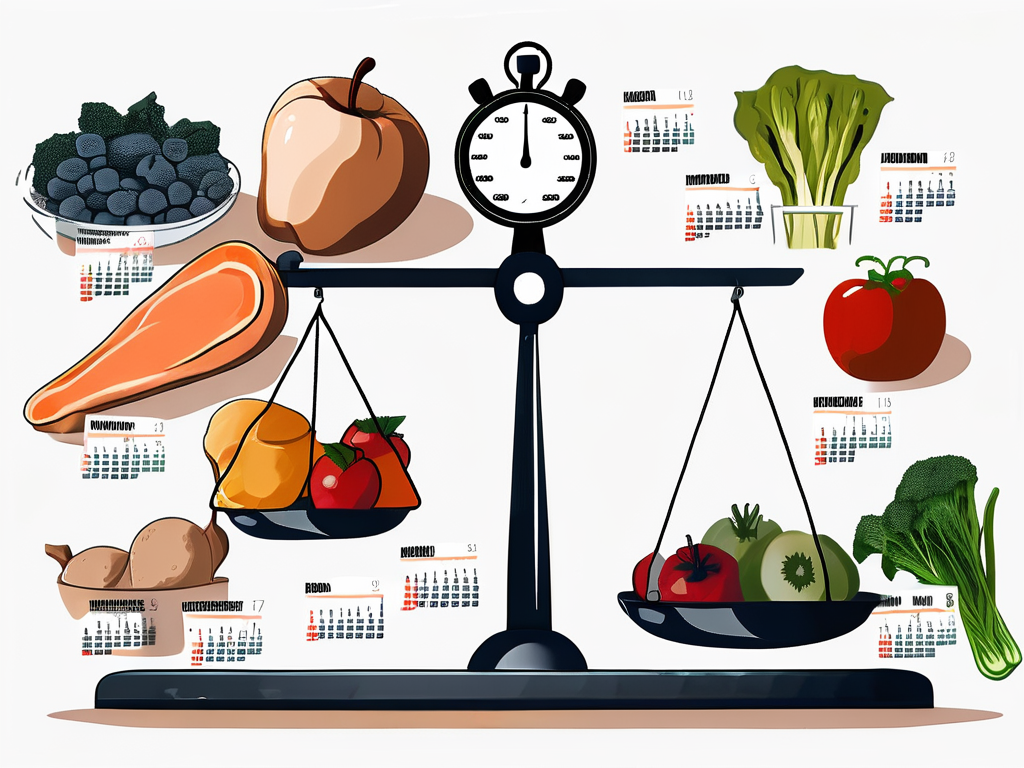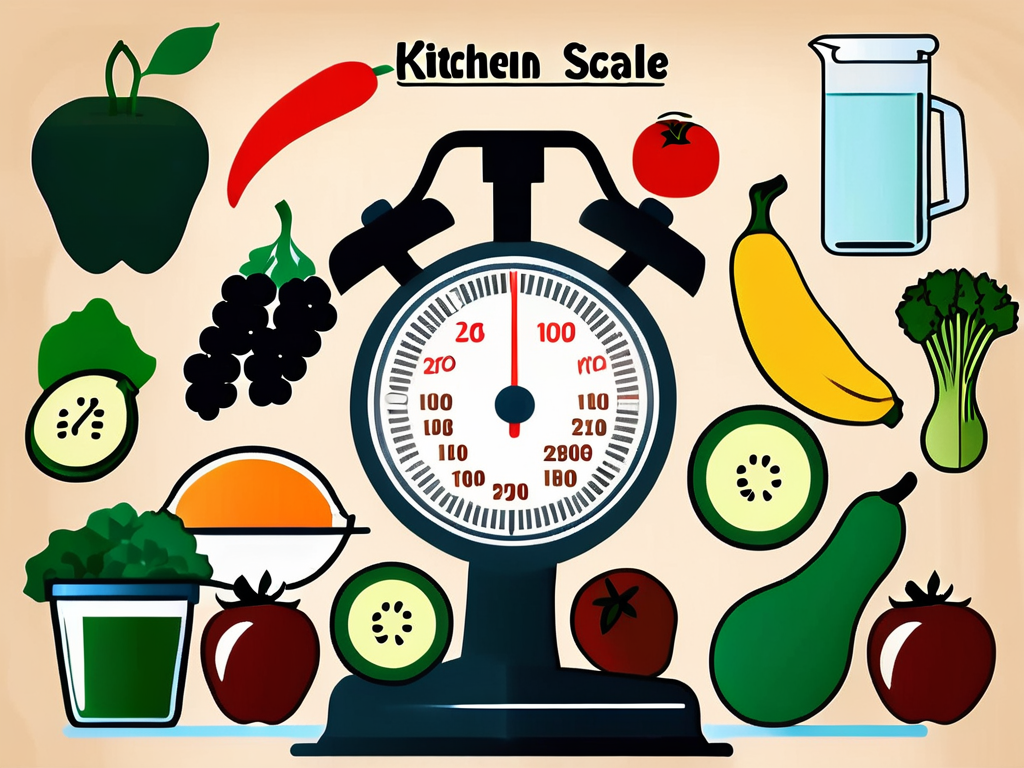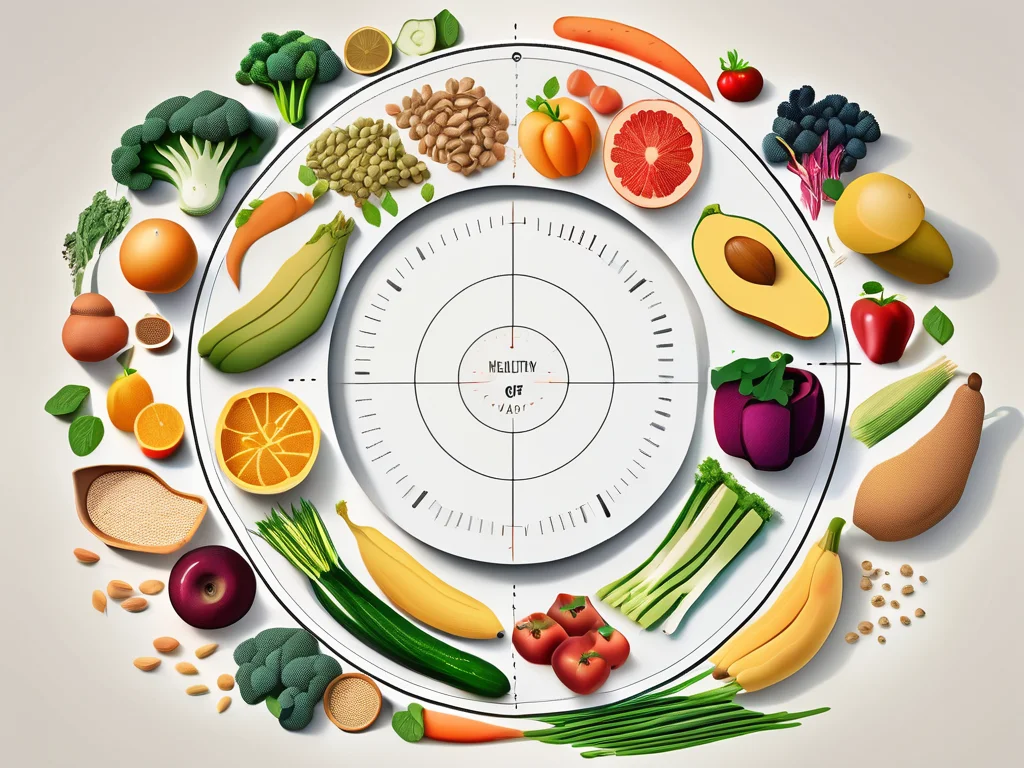In today’s fast-paced world, maintaining a healthy weight can be a challenging task. The sedentary lifestyle, combined with our love for fast food and processed snacks, often leads to unwanted weight gain. However, with dedication and the right approach, shedding those extra pounds can become a reality. A well-designed diet plan can help kickstart your weight loss journey and pave the way to a healthier lifestyle. In this comprehensive guide, we will break down a 7-day diet plan for weight loss, providing you with all the information and tools you need to achieve your weight loss goals.
Understanding the Basics of Weight Loss
Before delving into the specifics of the 7-day diet plan, it is crucial to understand the basics of weight loss. In essence, weight loss is achieved by creating a calorie deficit. This means consuming fewer calories than you burn throughout the day. Diet plays a crucial role in this process, as it determines the number of calories you consume. By following a well-balanced diet plan, you can control your calorie intake and, consequently, promote weight loss.
The Role of Diet in Weight Loss
Achieving your weight loss goals is not solely dependent on exercise. Diet plays a significant role, as it directly impacts the number of calories you consume. To successfully lose weight, it’s important to reduce your daily calorie intake. Cutting down on high-calorie foods and focusing on nutrient-dense options can make a big difference. Furthermore, a well-planned diet can provide you with the necessary nutrients while ensuring you stay in a calorie deficit.
The Importance of Balanced Nutrition
While the primary focus of a diet plan is to reduce calorie intake, it is equally important to ensure you maintain a balanced nutrition profile. Achieving weight loss doesn’t mean compromising on essential nutrients. Your diet should include a variety of food groups, providing you with a range of vitamins, minerals, and macronutrients. A well-balanced diet is not only crucial for weight loss but also for overall health and wellbeing.
When it comes to weight loss, it’s important to remember that not all calories are created equal. While it’s true that creating a calorie deficit is key, the quality of the calories you consume also matters. Opting for nutrient-dense foods, such as fruits, vegetables, whole grains, lean proteins, and healthy fats, can provide your body with the necessary fuel it needs to function optimally while promoting weight loss.
In addition to focusing on nutrient-dense foods, it’s also important to pay attention to portion sizes. Even if you’re consuming healthy foods, eating too much can still hinder your weight loss progress. Understanding proper portion sizes and practicing mindful eating can help you strike the right balance between enjoying your meals and achieving your weight loss goals.
Breaking Down the 7-Day Diet Plan
Day 1: Kickstarting Your Journey
The first day of your 7-day diet plan is all about kickstarting your weight loss journey. This day focuses on consuming natural, unprocessed foods that are rich in nutrients and low in calories. Start your day with a filling breakfast comprising of whole grains, protein, and fruits. For example, you could enjoy a delicious bowl of overnight oats topped with sliced bananas and a sprinkle of chia seeds. Throughout the day, include lean proteins, such as grilled chicken or tofu, along with a colorful array of vegetables and healthy fats like avocado or olive oil in your meals. Snack on fresh fruits and a handful of almonds to keep your energy levels up.

Day 2: Incorporating Proteins
Proteins play a pivotal role in weight loss. They provide a feeling of fullness and help maintain muscle mass during the weight loss process. On the second day, include lean sources of protein such as chicken breast, fish, and legumes in your meals. For lunch, you could enjoy a grilled salmon salad with mixed greens, cherry tomatoes, and a drizzle of lemon vinaigrette. Pair your protein with a side of steamed broccoli and quinoa for a well-rounded meal. Don’t forget to consume an adequate amount of water to stay hydrated and support your body’s natural detoxification process.
Day 3: Understanding the Importance of Fibers
Fiber is known for its satiating effect and numerous health benefits. On day three, focus on incorporating high-fiber foods into your diet. Start your day with a fiber-rich breakfast, such as oatmeal topped with berries, flaxseeds, and a dollop of Greek yogurt. Throughout the day, include a variety of fruits, vegetables, and whole grains in your meals. For dinner, you could enjoy a colorful stir-fry with bell peppers, broccoli, and tofu, served over a bed of brown rice. These foods will not only keep you full but also aid digestion and support a healthy gut.
Day 4: Hydrating Your Body
Proper hydration is essential for weight loss. On day four, ensure you consume an adequate amount of water throughout the day. In addition to water, incorporate hydrating foods such as cucumbers, watermelon, and leafy greens into your diet. For a refreshing snack, you could enjoy a cucumber and mint infused water or a hydrating green smoothie made with spinach, pineapple, and coconut water. These foods provide hydration and essential nutrients, keeping you nourished and satisfied.
Day 5: The Role of Fruits and Vegetables
Fruits and vegetables are a key component of any weight loss diet plan. On the fifth day, focus on consuming a variety of colorful fruits and vegetables. These foods are low in calories and high in vitamins, minerals, and antioxidants. Incorporate them into your meals and snacks to add flavor, texture, and nutritional value. For a delicious and nutritious lunch, you could enjoy a vibrant salad with mixed greens, cherry tomatoes, sliced strawberries, and a sprinkle of feta cheese. Drizzle with a light balsamic vinaigrette for a burst of tangy goodness.
Day 6: The Significance of Healthy Fats
Contrary to popular belief, healthy fats are an integral part of a well-balanced diet plan. On day six, include foods rich in healthy fats such as avocados, nuts, and olive oil. These fats provide essential fatty acids and promote satiety, keeping you satisfied throughout the day. However, it’s important to consume them in moderation, as they are high in calories. For a nutritious and satisfying snack, you could enjoy a sliced avocado with a sprinkle of sea salt and a squeeze of lemon juice. The creamy texture and rich flavor will leave you feeling satisfied and nourished.
Day 7: Maintaining the Momentum
As you approach the end of your 7-day diet plan, it’s important to maintain the momentum. On the final day, reflect on your journey, celebrate your achievements, and plan for the future. Continue incorporating the principles of the diet plan into your daily life, making healthy choices and maintaining a balanced nutrition profile. Remember, sustainable weight loss is a lifestyle change, not a temporary fix. Embrace the positive changes you have made and keep striving for a healthier, happier you.
Tips for Sticking to Your Diet Plan
Dealing with Cravings
Cravings are a common challenge when following a diet plan. To overcome cravings, it’s important to understand their underlying causes. Are you truly hungry, or are you craving a particular food out of habit or emotional reasons? By identifying the root cause of your cravings, you can find alternative ways to address them, such as practicing mindful eating or finding healthier substitutes for your favorite treats.

Let’s delve deeper into the concept of mindful eating. Mindful eating is about being fully present and aware of the food you consume. It involves paying attention to your body’s hunger and fullness cues, as well as the taste, texture, and aroma of each bite. By practicing mindful eating, you can develop a healthier relationship with food and reduce the likelihood of succumbing to cravings. Additionally, finding healthier substitutes for your favorite treats can satisfy your cravings while still aligning with your diet plan. For example, if you’re craving something sweet, you could opt for a piece of fruit or a small serving of dark chocolate.
Meal Prepping for Success
Meal prepping can be a game-changer when it comes to sticking to your diet plan. By dedicating a few hours each week to prepare your meals in advance, you can ensure you have healthy, nutritionally balanced options readily available. This eliminates the need for last-minute unhealthy food choices and makes it easier to stay on track with your weight loss goals.
Let’s explore the benefits of meal prepping in more detail. Not only does it save you time and reduce stress during busy weekdays, but it also allows you to have better control over portion sizes and ingredient choices. When you have pre-portioned meals ready to go, you’re less likely to overeat or make impulsive food decisions. Additionally, meal prepping can help you save money by reducing food waste and avoiding unnecessary takeout or restaurant expenses.
The Role of Regular Exercise
While diet plays a crucial role in weight loss, regular exercise is equally important. Engaging in physical activity helps boost your metabolism, burn additional calories, and improve overall fitness. Incorporate a mix of cardio, strength training, and flexibility exercises into your routine to maximize the benefits. Remember to choose activities that you enjoy to make exercise an enjoyable part of your weight loss journey.
Let’s dive deeper into the benefits of regular exercise. Cardiovascular exercises, such as running, swimming, or cycling, increase your heart rate and help burn calories. Strength training exercises, like weightlifting or bodyweight exercises, build lean muscle mass, which can increase your metabolism and help you burn more calories even at rest. Lastly, flexibility exercises, such as yoga or stretching, improve your range of motion and prevent injuries. By combining these different types of exercises, you can create a well-rounded fitness routine that supports your weight loss goals and overall health.
In conclusion, achieving weight loss requires a comprehensive approach that focuses on diet, fitness, and mindset. The 7-day diet plan outlined in this guide provides a structured framework to kickstart your weight loss journey, complete with understanding the basics of weight loss, incorporating a variety of nutrients, and implementing strategies to stick to your plan. By following this comprehensive guide and making sustainable lifestyle changes, you can attain your weight loss goals and embark on a healthier, happier future.



